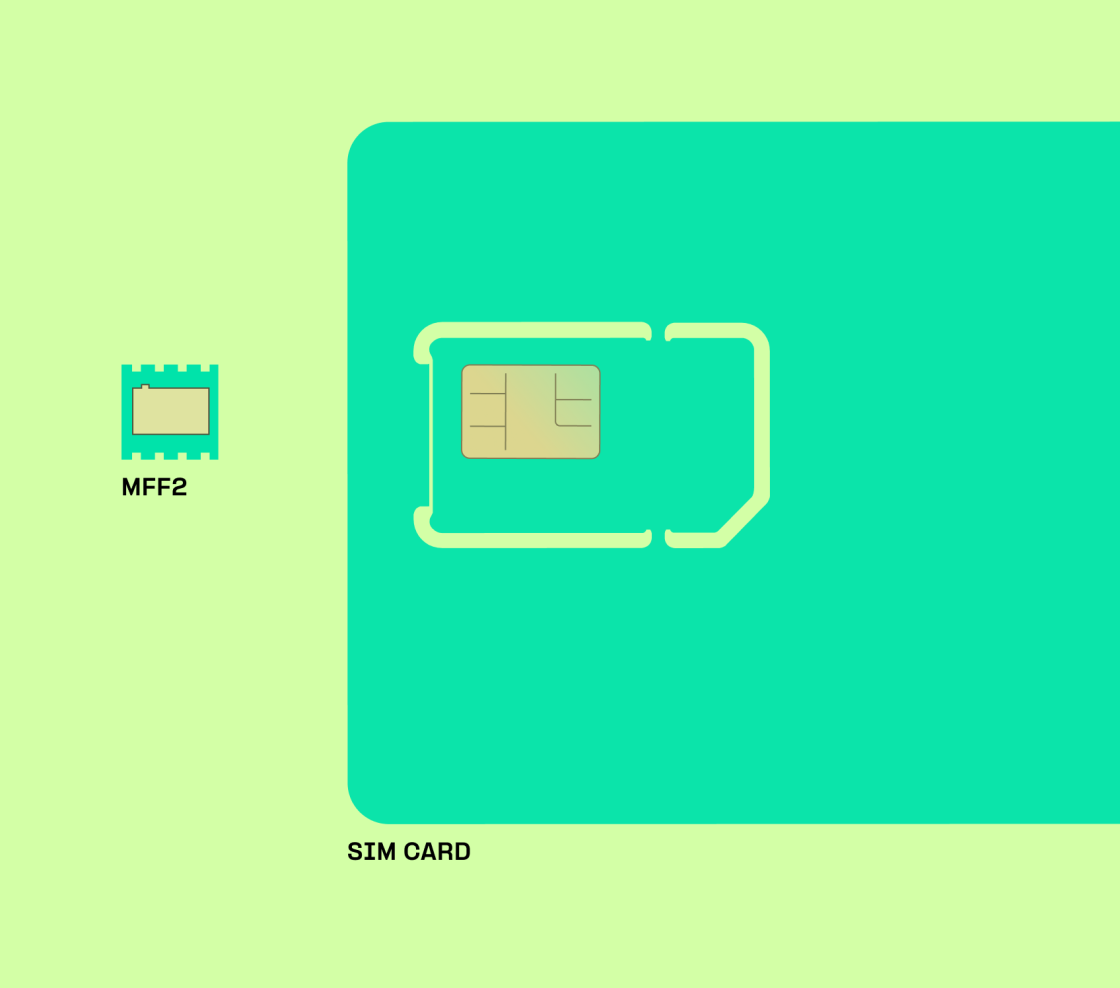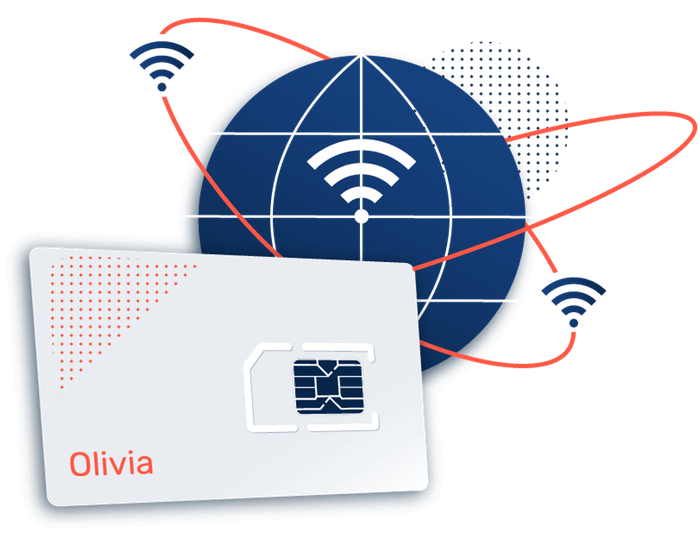What Is An Iot Sim Card IoT SIM Cards Explained Understanding Differences
What Is An Iot Sim Card IoT SIM Cards Explained Understanding Differences
Blog Article
Iot Sim Card Providers IoT M2M SIM Cards Data Plans
The position of SIM cards in IoT connectivity is changing into increasingly important as the world advances in the path of a extra interconnected landscape. IoT, or the Internet of Things, refers to the vast community of units that communicate with one another and exchange knowledge to enhance performance and effectivity. In this ecosystem, SIM cards function an essential component, facilitating wi-fi communication between devices.
SIM playing cards provide the mandatory identification that allows IoT units to connect with mobile networks. The distinctive identification numbers programmed into these SIM playing cards allow units to authenticate their connections with service providers. This is crucial as it helps forestall unauthorized entry and ensures that information transfers occur securely.
Iot Sim Card copyright IoT SIM
Different forms of SIM cards can be found for IoT functions. Traditional SIM cards, embedded SIMs (eSIM), and detachable SIMs all serve completely different needs within the IoT house. Traditional SIM playing cards can be inserted into gadgets needing connectivity, while eSIMs are embedded immediately into gadgets and are more adaptable to adjustments in service providers. The versatility of eSIM know-how performs a major role in numerous IoT functions.

IoT units are available in numerous styles and sizes, from smart home appliances to industrial equipment. Each kind of device may have completely different connectivity needs depending on its function. SIM cards can provide numerous information plans tailor-made for specific use circumstances, optimizing communication primarily based on bandwidth requirements, knowledge utilization, and different factors. This flexibility is instrumental in enhancing the overall performance of an IoT ecosystem.
Iot Sim Card Guide IoT SIM vs Normal SIM
Another side of the SIM card's role in IoT connectivity is the power to trace and manage devices remotely. Mobile network operators provide platforms that allow users to monitor their IoT units in real-time. This functionality is especially important in industries such as logistics and transportation, where understanding the precise location of property can result in higher operational efficiency and cost savings.
As IoT units proliferate, managing connectivity turns into extra advanced. Here, the role of SIM cards extends to enabling centralized management solutions that help administer a number of units concurrently. This is especially advantageous for enterprises working massive fleets of connected devices, which can monitor performance and connectivity more effectively through a single management interface.
What Is An Iot Sim Card IoT SIM Cards Introductory Guide
A major concern within the Internet of Things is security. With millions of gadgets linked to the web, ensuring the integrity and confidentiality of data is paramount. SIM cards contribute to this security architecture by providing encryption capabilities that safeguard sensitive information. The cryptographic keys embedded within SIM cards help secure communications between devices, making it difficult for unauthorized entities to intercept or manipulate data exchanges.
Moreover, the role of SIM cards is evolving as technology develops. The introduction of Narrowband IoT (NB-IoT) and Long Range Wide Area Networks (LoRaWAN) has opened new avenues for connectivity, particularly for low-power and long-range applications. SIM playing cards designed for these particular technologies allow gadgets to function effectively over long distances while consuming minimal power. This is especially relevant for remote monitoring and control systems, where replacing batteries can be costly and challenging.
While SIM playing cards have made strides in enhancing IoT connectivity, in addition they face challenges. For occasion, compatibility issues arise when integrating various gadgets throughout totally different networks. The introduction of standards and laws aimed toward harmonizing IoT services is an ongoing effort, however the tempo of innovation typically outstrips these measures. copyright Iot Sim Card. Adapting SIM playing cards to meet various requirements is crucial for ensuring a seamless expertise in the burgeoning IoT panorama.
Global Sim Card Iot IoT SIM card Affordable global connectivity

The impact of 5G know-how can also be reshaping how SIM cards operate within IoT connectivity. With considerably improved speeds and lowered latency, 5G offers capabilities that redefine IoT functions, ranging from smart cities to autonomous autos. SIM playing cards designed specifically for 5G networks might be crucial in leveraging the full potential of those next-generation capabilities.
In various sectors, together with agriculture, healthcare, and smart cities, the role of SIM playing cards becomes more and more critical. In agriculture, go right here as an example, sensors connected through SIM cards can monitor soil situations, enabling farmers to make informed choices about irrigation and fertilization. Similarly, in healthcare, remote affected person monitoring devices make the most of SIM playing cards to transmit very important health information to healthcare providers, enhancing affected person care.
The growing reliance on cloud providers in IoT functions often necessitates sturdy knowledge switch solutions. SIM playing cards facilitate these connections, enabling gadgets to send and obtain data from cloud platforms effectively. This functionality not solely enhances the functionality of IoT options but also improves the power to investigate data for better decision-making.
As connectivity evolves, the significance of SIM cards in maintaining a sturdy ecosystem cannot be overstated. Their position in figuring out, securing, and managing gadgets is central to ensuring seamless communication inside the IoT panorama. Whether it is via conventional SIM playing cards or newer technologies like eSIMs, their significance will only continue to develop in an increasingly related world.
Iot Sim Card South Africa Unlimited IoT SIM Card 12 Month Prepaid Service
The integration of synthetic intelligence and machine learning into IoT solutions signifies yet another evolution in connectivity. SIM cards that may deal with enhanced data processing capabilities shall be important for the smart decision-making processes enabled by these technologies. Collectively, these developments will lead to more clever systems capable of adapting to changing situations autonomously.
In conclusion, the role of SIM cards in IoT connectivity is multifaceted and important for the expansion and sustainability of an interconnected world. By ensuring secure identification, facilitating remote administration, and adapting to new technologies, they play a important half in the evolution of IoT applications across numerous sectors. As know-how advances, the significance of SIM playing cards will solely intensify, driving additional innovations and improvements in connectivity methods.

- SIM playing cards provide a secure and distinctive identifier for IoT gadgets, enabling trusted communication inside networks.
- They facilitate seamless connectivity in various environments, from urban areas to remote places, enhancing the reliability of IoT purposes.
- With the appearance of Embedded SIM (eSIM) expertise, IoT devices can change carriers simply, enhancing community adaptability and lowering downtime.
- SIM playing cards contribute to data encryption, making certain that the knowledge transmitted between units and networks stays safe against unauthorized access.
- They enable over-the-air updates, allowing manufacturers to push firmware upgrades directly to IoT units without physical access.
- By integrating subscription management, SIM cards help in maintaining and monitoring data plans, optimizing costs for businesses deploying large IoT networks.
- SIM cards enhance device monitoring capabilities, making them essential for logistics and asset administration in various industries.
- They assist multi-network connectivity, which boosts redundancy and reduces the chance of communication failures in important functions.
- The function of SIM cards in network slicing allows for tailor-made connectivity solutions, making certain that different IoT applications obtain the appropriate bandwidth and latency.
- SIM playing cards are pivotal in facilitating gadget provisioning and management, streamlining the deployment course of for large-scale IoT implementations.undefinedWhat is a SIM card and why is it necessary for IoT?
Iot M2m Sim Card IoT SIMs Any Device Anywhere
A SIM card is a small chip that allows units to hook up with cellular networks. In IoT, it offers safe communication and permits gadgets to send and receive knowledge, making them accessible and manageable remotely.
How do SIM cards enhance knowledge security in IoT devices?
SIM cards make the most of encryption and authentication protocols that ensure secure communication between the device and the network, defending towards unauthorized access and information breaches.
What kinds of SIM playing cards are used in IoT applications?
Vodafone Iot Sim Card The Ultimate Guide IoT SIM Cards
IoT applications often use specialised SIM playing cards, similar to M2M SIMs and eSIMs, designed for diverse environments and providing enhanced sturdiness, remote management, and flexibility in connectivity options.
Can IoT units function with out SIM cards?
How Iot Sim Card Works Smart Connectivity IoT Services
While it is potential for IoT units to attach through Wi-Fi or different advice wi-fi technologies, SIM playing cards are crucial for mobile connectivity and are important for units that require intensive protection and roaming capabilities.
What is the distinction between traditional SIMs and eSIMs in IoT?
Traditional SIM playing cards are physical gadgets inserted into gadgets, whereas eSIMs are embedded chips that could be programmed remotely, offering higher flexibility for device manufacturers in managing connectivity with out hardware adjustments.
How do SIM cards contribute to cost administration in IoT deployments?
4g Iot Sim Card Narrowband IoT SIM cards
SIM playing cards allow optimal connectivity solutions, allowing companies to choose out acceptable knowledge plans and manage knowledge usage efficiently, serving to to minimize back operational costs related to knowledge transmission (Sim Card For Iot).
What are the challenges related to using SIM cards in IoT?
Challenges can embody managing a quantity of SIM cards for varied units, ensuring compatibility, addressing community protection issues, and coping with potential fraud or security vulnerabilities in cellular communication.
How can businesses choose the proper SIM card for their IoT needs?
Iot Machine To Machine Sim Card IoT SIM card
Selecting the best SIM involves contemplating elements like network coverage, information usage, device compatibility, long-term scalability, and safety features. Consulting with service suppliers may help align selections with operational wants.
What role do SIM cards play in future IoT innovations?
SIM cards are important for enabling next-generation IoT innovations, as they facilitate seamless connectivity, drive automation, and enhance device administration capabilities, thus supporting extra advanced purposes like smart cities and remote healthcare.
Report this page